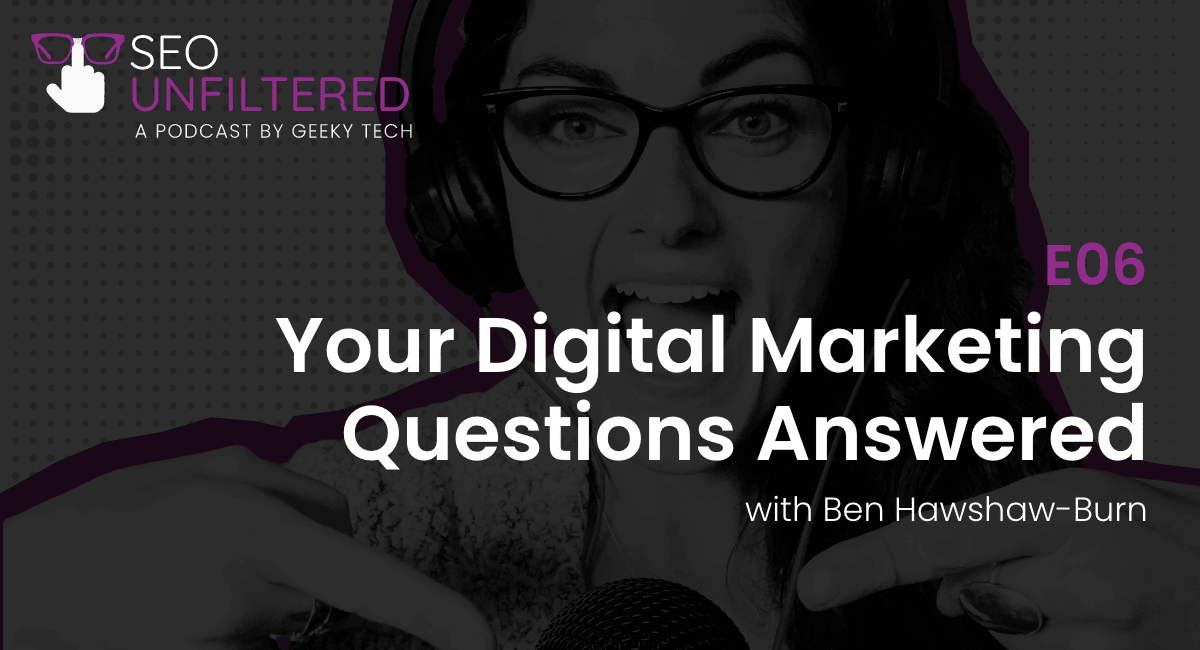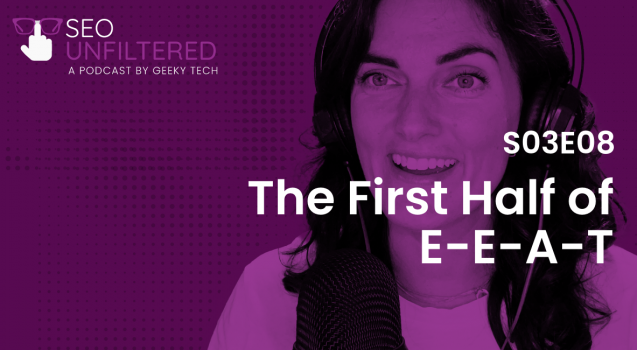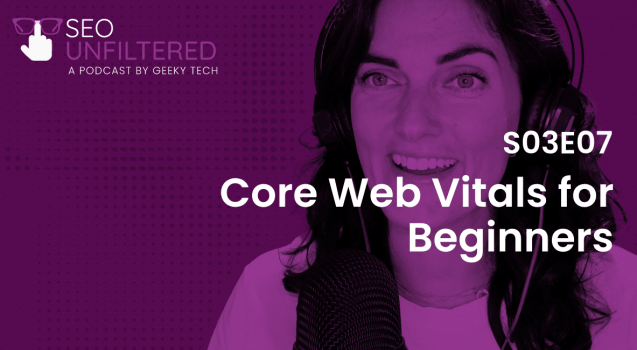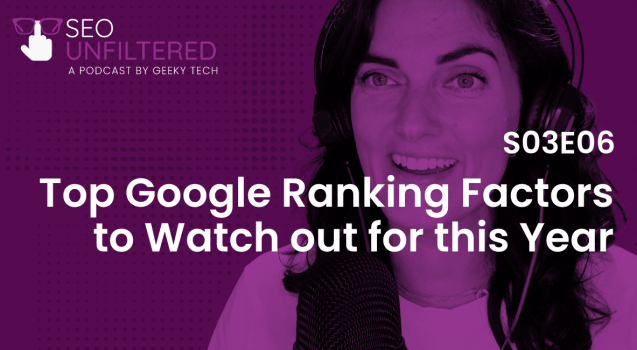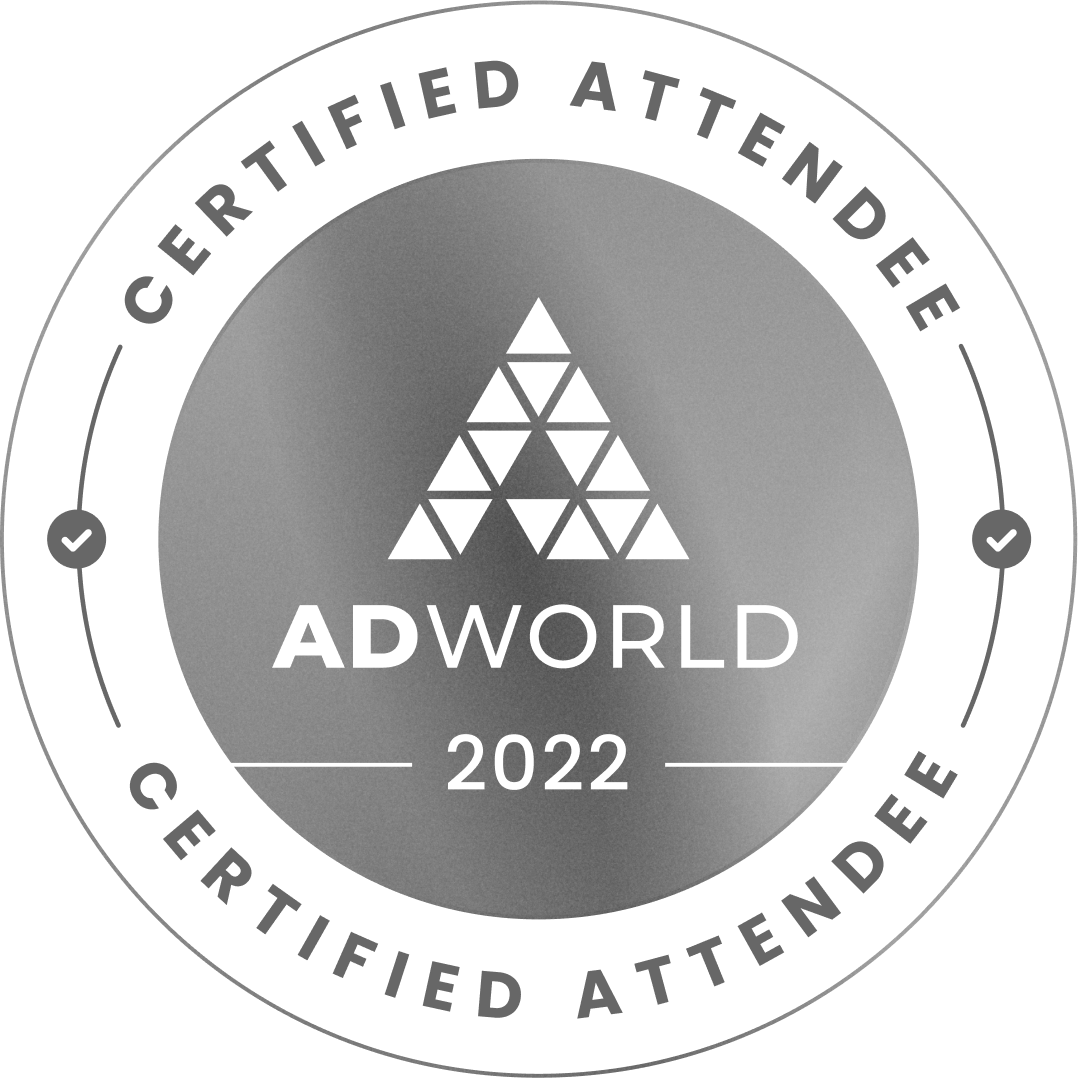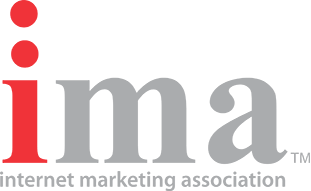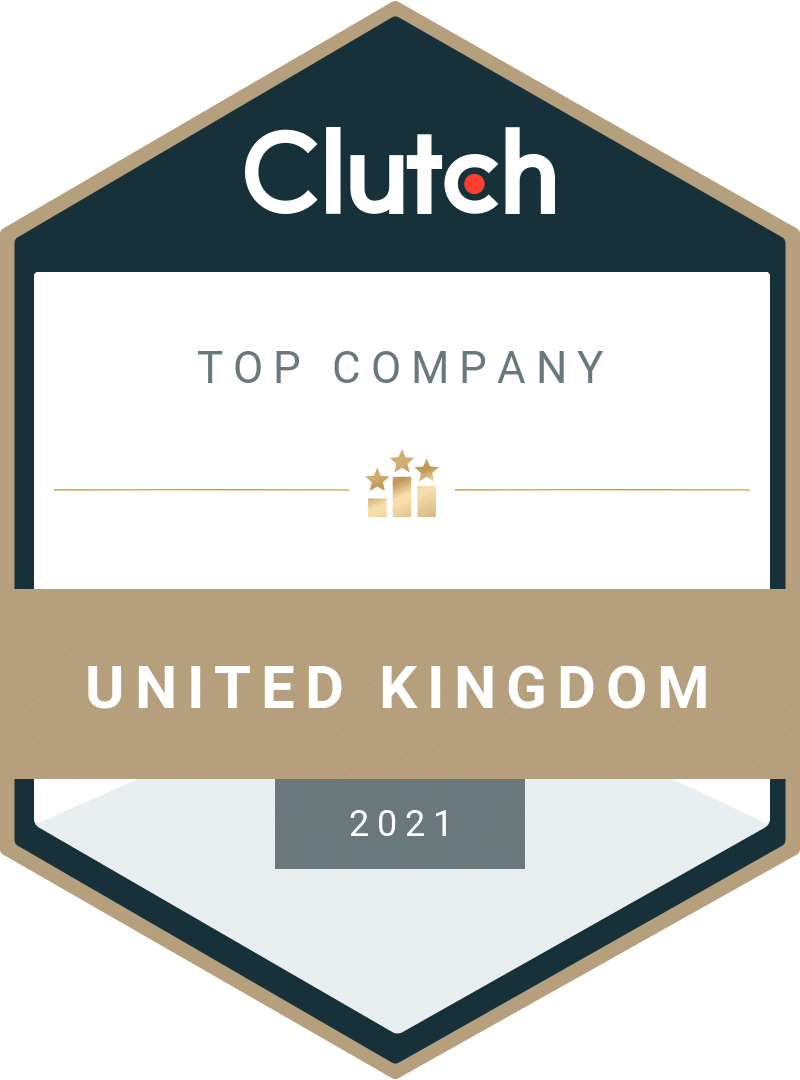Transcript
Stick around because we will be dropping those details at the end. But spoiler alert, you can find us on social media at geeky tech geeks and follow the bouncy ball from there with me to answer these burning listener questions are some of my previous guests. Ben Hawkshaw burn Ellen Mansford and am mean the cab.
Hi guys. Hi Genny. Hi Genny. So without further ado, let’s start with question one, which is for Ben, the keyword king. Just kidding. We don’t really call him that. So Ben, this person asked probably a little frustratingly. How much should I be spending on SEO every month? Is it even possible to give a straightforward answer with this one?
[00:00:53] Ben: That’s a popular question. Okay. I have to say that is a very popular question. Um, in fact, I mean, it’s probably, especially from a marketers perspective, it’s one of the first thing that, that everybody wants to know, you know, how much is it gonna cost? How much do I need? Mm-hmm um, et cetera. And without.
Kind of going into one of those typical how long is a piece of string answers? Yeah, unfortunately that kind of is the answer. I mean, I can, let me, I’ll give you some, some ballparks, but let me just help you understand. What’s really gonna kind of make up the, the main kind of elements around the cost and really that’s gonna come down to the level of competition.
Okay. Versus where you are. So, um, again, once you kind of determined. What, what words you want to go after, or if you’ve got an idea of the words that you want to go after, um, you can go to Google, you can see the people that you are competing against and based on kind of where you are and where they are from a, a, a business popularity perspective, or, you know, How well known they are, or, you know, there’s, there’s lots of different SEO metrics we can look at to help quantify that.
But even without any SEO experience, you can typically just have a look at the size of an organization. Mm-hmm see if they see if they’re mentioned in the press, um, And that will then determine how much budget you need to spend. So an analogy I use, um, when customers ask that question, when somebody asks me, oh, how much does, how much does it gonna cost as a bit of a, a joke?
I say, well, if you want me to rank you for underwater washing machine, um, which I then normally ask them to Google. Cause if you Google underwater washing machine, you’ll see us. Number one. Um, I’ll normally say we can do that this afternoon for 50 quid. And the reason behind that is cause there’s, you know, there’s no competition, but behind underwater washing machines, um, You know, we are the only person on the internet, the only company that have written a page about an underwater washing machine.
And there’s no content on that page. We’ve just included one word in the right part of the URL. And because nobody else on the internet is talking about that. We’ve, we’ve won that race. If there’s, you know, The other end of the scale, um, you know, which again, in, in the UK, this might be a bit popular, but if, if you wanted to rank for payday loan, uh, which is like a short term, personal loan, you know, we might need 50, 60 K a month, you know, and this time, next year we might need even more.
Cuz it’s, you know, it’s like a blood bath and you’ve basically got everything in between the kind of underwater washing machine and the, the payday loan examples and okay. It’s that kind of recipe. Where you are versus the other options that Google’s got to offer.
[00:03:27] Genny: Oh, wow. So it really, it really depends on the, the industry and, uh, where they are right now.
[00:03:35] Ben: Definitely, I think a couple of big things, maybe local and national SEO. So you would tend to spend more on, on national terms. So if you are a smaller local business, or if you are running kind of multiple small locations and you wanted to rank for, you know, pizza Gilford or pizza working, or, you know, something like that.
The amount of effort and time required to rank a business locally typically is gonna be less than a national word. But again, that really comes down to, to competition. You know, if you had a really competitive local, a local term, you know, like it support London, for example, that might be more competitive on a local level than.
You know, something national that has very little competition, but typically, you know, a local SEO company. I mean, I, I would say that anything less than a thousand pounds a month, you wanna be just quite wary off. Yeah. Um, yeah, because when it, you know, it comes to doing any amount of quality work, you know, if you wanna spend some time doing some keyword research, if, if they want to.
You know, optimize your site and spend any time building any kind of quality links, even if you’re just building local links in directories and citations to do that properly and manually by a real person using common sense all takes time. So, uh, I think anything less than, than a thousand pounds and, you know, you could spend hundreds of thousands of pounds a month on SEO.
Um, it’s more. Getting from our perspective, not making it a cheesy sell. We try and focus on getting you your biggest bang for your buck, which is why keyword research is so important. You need to pick the right race to, to compete in.
[00:05:11] Genny: Okay. Just outta curiosity. Has any client ever been really surprised by the quote you gave them?
[00:05:18] Ben: Yeah. Yeah. Loads I think with, with a lot of, uh, I mean, if you have no experience of SEO yeah. Um, you might. You might have just had hundreds of, of companies in India and other places send emails, offering to do SEO for $200 a month or, you know, 500 pounds a month or whatever. And that can then I guess, create a bit of an expectation or an impression in your head or equally what we come up against more often than not is, is people’s kind of lack of understanding of what’s required from an SEO perspective.
So. They, they assume, oh, you know, I just need someone to do a bit of keyword research or, uh, quite often we we’re asked just to, I just want to optimize my site. Um, you know, or just want like a technical audit of my site. And, um, again, you know, it’s not that that’s something that we can’t do, but you, all of these things need to have a reason.
Um, you know, they need to be going somewhere and if you’ve got a really small budget or either you, you know, your. Have a, don’t have a huge understanding of SEO. You you’ll wind up wasting a smaller budget. You’re you’re better off almost doing nothing. I mean, one thing that is, is probably important to remember is your, everybody, if you, by having a, a website, you are in the SEO race, you know, if you imagine that SEO is a race or a marathon, or maybe every keyword is some form of when you create a website, that’s like your entry into the SEO race.
Mm-hmm . So whether. Want to be doing SEO or not. Google will be crawling your website and they’ll be determining where you sit and where you rank. And, um, sometimes, uh, doing nothing can be better than doing a really bad job of that.
[00:06:57] Genny: Okay. Oh, interesting. Okay, perfect. Thank you. So geeks hope you took note of that.
And if you’re trying to figure out if you should hire an SEO employee or outsource your digital marketing, we’ve recently dropped a helpful article that gives you a breakdown of all the costs associated with both next question. And I will shoot this over to my good friend, Alan, who is in case you didn’t know the on page SEO and reporting expert at geeky tech.
So Alan, why is Google sun setting universal analytics? And is there really no way I can keep using it after next year? That’s the question.
[00:07:31] Alan: Okay. There’s a couple of reasons why they are sun setting it. The first reason is that GA four, which is the, the new platform, the new iteration of analytics incorporates two separate sets of data streams, or possibilities for data streams.
So universal analytics was just websites. Whereas GA four is websites and apps. now previously you’d have to have them as two separate properties and therefore look at your data in two separate data streams or two separate reports. And if they are one and the same to you as a business, that makes things a bit confusing.
Whereas GA four allows you to basically have one property and two inputs. So therefore you could look at all your traffic and that includes your website and your app, or even, you know, multiple apps and multiple websites in one place. So historically GA four was previously called, uh, I think it’s website and app properties or something along those lines.
And this they’ve basically rebranded it something far nicer, just GA four. Okay. Um, the other reason is it’s an event. GA four is an event based system, which is slightly different. It’s a bit tricky to explain that simply cause I’d have to explain what universality was as well, but it seems to be the, the way that reporting is going.
Analytics is event based. So, uh, I think Facebook and other social media platforms, which have reporting also use the same model. It just seems to be a tidier way of doing things. Um, you can continue to access universal analytics so that the, the current version, uh, for the historic data. So it will continue collecting until July the first 2020.
And so far, they haven’t set a date as to when that data will expire and you can no longer access it. Um, it, I wouldn’t expect it to be there forever. I’d imagine within a, a year or two, they’ll tell you that it’s no longer available at all, which is why. Well, they give you warning, you think? Yeah, they they’ve said they have said that they haven’t set a date, which implies that they, they will set a date at some point.
Okay. Okay. Um, so you can continue to access it, but you can’t continue to use it as your analytics platform. It will not be inputting data and therefore it’ll be useless to you.
[00:09:52] Genny: Okay. Oh, but what if you, I mean, if you don’t have an app, if you don’t need that side of it, that new feature, then I guess it’s basically, well
[00:10:01] Alan: the same almost.
Yeah. I mean, like for like, almost like for like, there are some, some differences, um, which we’ve discussed on, you know, the blog posts we’ve done about, um, engagement so they can engage sessions rather than bounce rates and average time on page. Mm-hmm. I think university analytics is 13 years old. Oh my God.
And the way it’s set up. So, uh, obviously everyone really likes it because it feels like home. And if you feel like me and you spend a few hours a day in analytics, you know, your way around every nook and cranny, right. Having said that, I think once we’ve moved over to GA four and we’ve been using it for a couple of years and we look back at universe analytics will probably feel like it’s a bit of a, a.
[00:10:41] Genny: Right. And also, yeah, 13 years is really old in, in tech terms.
[00:10:45] Alan: Yeah. And, and I think we can expect this thing to, you know, they’ll in probably 10 years time, there’ll be another version G five coming out and yeah. Everyone will be up in arms again, and we’ll be doing the same conversation. just about moving on to the next thing.
[00:10:58] Genny: I mean, you’re sorry, just as a side question, you’ve been, you’ve been using it for a while now. Has it been easy to, to learn? Yeah. I think if
[00:11:06] Alan: you’re coming in from fresh. Yeah, it it’s perfectly fine. The problem is if you go in having known everything about universal analytics and your, and that’s your, your benchmark, you’re expecting it to be the same.
Right. And it’s kind of, there are some core differences, right? Which take a little while to get used to even just the menu on the left hand side is different. And why is it on the right hand side? no. No. So just the actual what they call things and the way you navigate around things, ah, everything is called different things, even if it’s, you know, not, not in terms of, you know, traffic and acquisition, but uh, it’s now it’s now reports and events rather than whatever it was.
So it’s um, yeah, it’s, it doesn’t feel like home yet. And even though I’ve set up all the customers and spent probably a hundred hours or so in GA for I’m still spending my day to day in the old. For our current customers until we move across, when we’re, you know, forcefully pushed by Google .
[00:12:01] Genny: I mean, thankfully Google has, uh, tons of tutorials and like step by step instructions on how to set it up.
Right?
[00:12:07] Alan: Yeah. You shouldn’t have any trouble setting up. We will. I’m sure we will provide some resources around that as well. If you, oh, you will.
Yes. . Um, but there’s, there’s no substitute really for. Going in the platform and clicking around and getting used to it. Yeah. I also presume that things will change between now and July next year as well, because there’s a lot of complaints from you really well, just because it’s so different. You know, what, what about this feature we love in universal analytics?
Why isn’t it there in GA four? And they might think, oh, you know, it’s because this is the way forward. People will get in line as, and when, if there’s enough backlash, what they’ll do is they’ll just incorporate it in GA four, even. Because they’re getting more feedback now than they ever have, because more people are using it than they were last year and a year from now, I’m sure 10 times more people will be using it than they are now.
So they’ll have more and more feedback and more criticism and hopefully more changes. So even some of the videos I’ve seen from Google now about setting it up and troubleshooting certain areas, the menu has changed since. So they’re, they’re obviously hard at work making it user friendly. Okay. Oh, well, that’s good
[00:13:15] Genny: to know.
Yeah. All of that also means don’t don’t get too comfortable.
[00:13:20] Alan: yeah. I mean, hopefully it only gets easy or gets better, but yeah, again, like I say, it could depends what you’re comparing it to and, um, most regardless of whether it’s better or worse, people are very used to universal analytics. So indeed. Yeah, no one likes change.
[00:13:34] Genny: No one likes change. That is very true. okay. Thank you. Okay. Just to add to that, I will say that we have a few resources about this very same subject. And if you check back into our geek speak blog at the end of the month, Alan will be giving a few tutorials on how to customize some of your settings. So be sure to check that out.
Thanks, Alan. So the next question is for Amin, but could be answered maybe by a lot of you here, which is how is the future disappearance of third party cookies going to affect my ads?
[00:14:04] Amine: yeah, really good question. Um, especially when it comes to ads, because we know how much ads and ad platforms rely on data mm-hmm and, um, data is the way that allows for us advertisers to have all of those targeting options.
I want to. I want to target people between 18 and 50 years old, who like cats, who just bought a , who just bought afford in the last six months. So all of those targeting tactics lie heavily on the data that is collected. Okay. Now, before, before third party cookies, um, or, or. in the old times of advertising or digital advertising, uh, people still could do advertising and sometimes do it well, even with the limited available targeting methods, initially there was like, you needed to approach a specific publisher that, that you thought your audience, um, visits or reads their information, uh, on or.
Watch their favorite, um, media content in, and then the publisher would share their audience statistics or, um, their media deck, what we call in the industry with you. And they would tell you, okay. Um, based on our. First party data, because since it’s the website, they, they, they know, uh, they know how many people visit their gastro category.
How many people visit their business category technology news category. So they, they can, um, they can kind of tell you, okay. 15% of the users we receive on our website are interested in technology. 15 are interested in, so social news, uh, you know, all of those kind of segments. And you could decide then to include that publisher on your media plan or not based on your target persona.
And, um, and it worked just fine. And this is. This is still something that, um, that some, some publishers do publishers that are maybe left out. They didn’t want to really like integrate like programmatic or, uh, integrate with third party data, et cetera. They still, they still to this day in some countries sell their inventory that old way.
Okay. There is always that old way of doing things that might come back, but. As long as we are working with, uh, what we call, you know, this world garden ecosystems. Um, I don’t know if you’re familiar or with no, I don’t know that. Yeah. So a world garden is a term that, um, is given to closed ecosystems in which all of the operations are controlled by, um, one operator.
So if we take an example of Google, yeah. Google. Has the demand side platform, which has the platforms that the a as advertisers use to buy, uh, inventory. And it also provides the supply side platforms, which all of the websites use to implement, you know, all of those ads, slots, and. put them into, uh, make them available on the, uh, ad exchanges.
And Google also owns an ad exchange, which regulates and manages all of those buying and selling in operations. Yeah. And it also has some internal data because, you know, Google it’s 1.5 billion, monthly Gmail users. Wow. So the amount of data that they collect. Yeah. Also when it comes to, um, to operating systems, Google has Android, uh, so 3 billion devices, Android devices around the world.
Google also owns Chrome, which is 70% of the browser market making it like the number one first browser market. If you’re connected using your Gmail account in your Chrome. uh, since it owns Chrome is used practically on desktops and on mobile. So it can link and know this is the same person. Right? So cross device is available there, all of this data to Google it’s first party data.
Yeah. So when you have like that kind of wall garden, and that ecosystem where you own, or you have access to all of those steps, Even if like third party cookies die, at some point, you, as that ecosystem still have access and have already built that data. So probably most of the targeting options that we have available now will stay.
Oh, okay. Facebook the same 2.8 billion monthly users. Same for TikTok. Same for most of those platform. Um, so yeah, basically the, the plus when it comes to Google, the main revenue stream is from Google search and the search ends in is owned by Google. Okay. So third party cookies are not needed there. Okay.
Yeah. And Google has postponed, like I think in my opinion, the only reason they have postponed, uh, the deprecation of third party cookies until mid 20, 23, is to preserve as much of the remarketing ad revenue now, before flipping the switch. Yeah. So, but other than that, like if we take search, for example, like I said, it doesn’t rely on third party cookies that much, but what
[00:20:05] Genny: about for programmatic display?
[00:20:09] Amine: Uh, programmatic is the same. Google owns a DSP. They own Google ad, um, ad platform, which is an ad exchange. They own DFP, but, uh, or that’s the old name now? I think it’s called,
[00:20:25] Genny: but not all of them,
[00:20:26] Amine: right? Yeah. Not all, all of them, but still, if you are, if, if you website is, if you’re the New York times and you are using Google analytics, Google has access to your first party audience.
Okay. You know, who visits you coming from? Where. what pages they visit on your website.
[00:20:47] Genny: Okay. So what you’re saying is that Google is so ubiquitous that most of the time, the, uh, companies don’t really have to worry, cuz they’ll still have access to that. Yeah.
[00:20:58] Amine: Most of the targeting tactics would still be available.
Uh, again, this is a guess based on, based on the information that we have now. Um, yeah. And how huge, uh, is Google or Facebook or even Amazon, for example. So, right. Yeah. And now we are seeing more and more, and this is the main reason why we are lately. Like since the last 10 years we have started seeing more and more, um, more and more providers or companies trying to, trying to enter that kind of wall garden ecosystem or building their own.
So you have, for example, apple, apple is the best example when it comes to closed E. uh, in terms of, in terms of everything, like just the fact that they removed the Jack, the Jack. Oh yeah. That’s true. True from their devices. Yeah. They’re pushing everyone to use the app technology or connector, which is.
The mm-hmm I don’t, I don’t remember how, how it’s called. It’s been awhile since I’ve used an iPhone but yeah, that’s that’s one example. They do the same software wise, they own, and they build iOS and they make it as closed off as possible. So they have, so they have access and they can make money out of.
You know, push creating apps within their ecosystem, pushing, pushing those apps, running apps on those apps, uh, micro transactions on those apps. They make money from all of that. And since a few years ago, they bought they, they started running or they, they started their own ad platform in which you can run, uh, search apple search ads.
For example.
[00:22:56] Genny: Okay. And soon they’ll have their own browser or search engine. Yeah. They have
[00:23:01] Amine: safari, uh, and you can run and you can run search ads on their app store as well. So that’s, that’s one example, uh, Samsung also created their own DSP. So Samsung, yeah. With Samsung, if you own a Samsung device, they have access to the data, which apps you install.
Uh, they can track everything, right. Also, if you own a Samsung TV, that’s a smart TV that you know, which content you consume, which channels, which how, how, how much time you spend on YouTube, how much time you spend watching a specific channel, et cetera. So what they did lately is they launched their own CTV, DSP, where you could buy their CTV.
Uh, I. What’s CTV, uh, it’s connected TV inventory, where you could want ads on all connected TVs and without the data, they can’t do it. So what we’re starting to see is each company is trying to create its own closed off ecosystem to make sure that they ensure they, they will still have like a chunk or piece of that buy from ad ad revenues.
Because otherwise, like Google would have access to everything. Yeah. And yeah, it’s not easy to have your own closed of ecosystem or to be a world garden because you need to be really big and have access to lots of data. But yeah, some, some publishers or companies are able to do it and.
[00:24:42] Genny: But on the advertiser side, essentially in summary, what you’re saying is not to worry too much about it.
Yeah. Because the data
[00:24:49] Amine: will still be there. Yeah. For now, if you’re using the major ones, I don’t think it will impact that much. The targeting tactics. It might, it might impact the algorithms that optimize for target CPA, for example, because those rely on intent data. How close is a user to make in one action to buying a product or to subscribe in or signing up for, for service.
That intent data is sometimes shared by third parties outside of Google or outside of the publishers that might. I think that’s the areas where we need to experiment afterwards to see if we see an impact. Otherwise, when it comes to targeting, like being able to target specific age group or specific interest, I don’t think those would, um, would take a big hit
[00:25:40] Genny: because it is a wait and see thing.
And another thing too, is that we don’t, we’re only given little bits of information at a time. They don’t share everything right away.
[00:25:49] Amine: So, yeah. Yeah.
[00:25:53] Genny: Amin. Here’s a question for you. That’s probably easier for you to answer. So the listener wrote, does it make sense to plan my ad campaigns a year in advance or should I wait to see how my ad groups perform before I schedule the next campaign?
[00:26:06] Amine: Um, that’s a good question, ideally. Um, if you have, if you have a yearly marketing plan, it should be translated into.
um, into a paid paid media, or what are you going to do, uh, in terms of paid media or paid advertising? Uh, according to that. So if you’re planning a new product launch in Q3, for example, you should definitely be planning for it. From a budget perspective, like how much of our paid ads, monthly budget are we going to allocate you with evenly budget?
Um, what would be our objectives? Is that something that we have tested before? Um, et cetera, all of that, all of that should result in a plan, just like you have a retro planning for. Your general marketing activity. It should, it should be translated into one that’s relevant for paid ads the earlier the better simply because it allows you to do okay.
Uh, to look back, look at your historical performance, if it’s campaign that you, that you launch on a yearly basis, like. Spring sale. Uh, I’m just making this up now, but yeah, it, it, it should help you gather those previous insights. So you are not redoing same errors or you are starting from a better, better starting point.
If you compare yourself to your past self from a budget perspective is easier as well, because it allows you to, to plan. Way ahead and not end up with, for example, a month where you haven’t planned for specific campaign and your right, your paid ads, budget is limited and you can’t unlock more budget and yeah, you end up spreading that month’s budget to attend from a, from a creative perspective.
It allows you as well to, to start thinking about the messaging beforehand, to having enough time to develop. Um, to develop and produce all of the creative assets, uh, because we know that’s one phase or one step that takes a lot of time and a lot of resources. And if you want to innovate, it does allow you again, since you planned earlier to experiment with new ad formats.
Yeah. Uh, that require, yeah. Maybe some custom development maybe. Yeah. Maybe formats that you haven’t tested. Jerry, Jerry speaking, it’s good from a relationship with the agency. Um, because again, an agency can help you way before the moment you decide, okay, this is the company I want to launch. This is the target person we going after, et cetera, other than the historical performance, the agency can help you during the research phase to provide you with some insights.
Maybe there is a new channel that entered the market in which like the biggest chunk of their audience is your target persona. And you haven’t, you have never used that channel before. Maybe there is a new ad format. Maybe there is a publisher deal that you negotiated. , uh, for example, that you should be taking into account in your media planning.
So all of those, maybe, maybe there is a new targeting tactic, um, added by one of the ad platform that you use that will help you target more precisely that target persona. So, which means you probably allocate more budget to it. Yeah. So all of those variables in order to define them and lock them down before the campaign to allow you for the time to prepare for it correctly, the earlier the better.
[00:29:50] Genny: Okay. So even if you prepare it early on and you launch it, and then you take a look at what’s going on with it, and you realize that it’s not performing as well, you could still go back and tweak it, right?
[00:30:03] Amine: Uh, yeah. Once you launch a campaign, that’s part of the management kind of process or timeline where.
um, if it’s a short campaign, you don’t have that, that free, not, not that rhythm, but you don’t have that like long period, which will allow you to, to do a campaign check mid campaign or after the first week, et cetera. But if it’s a long campaign will definitely give you more time to do those checks. Um, look at what you can.
Optimize right away. If the budget allocation needs to change, if some specific targeting is not working correctly, propose another, another targeting tactic and tested, right. Uh, et cetera. Yeah.
[00:30:50] Genny: Okay. And I think that’s it for advertising related questions. So thanks for your input. You’re officially off the.
Moving on to a more strategy related question. This one is obviously for Ben, actually, this one’s quite easy. So the question is verbatim. One of you guys talked about quick wins on one of the episodes, but I’m still not sure what that means. Can you explain please? And thank you.
[00:31:13] Ben: um, yeah, quick wins. It really depends who you’re talking to.
Actually, um, we, we often have been kind of debating this internally, really a quick win. I mean, a, a quick win is when you are. In the kind of literal sense when there’s an opportunity to win something quickly, I guess, through some existing exposure. That’s what we are. We we’re kind of basing that on. So if somebody from a geeky tech perspective says you quick win, typically it’s gonna mean that.
You already have a page created, you already have some content about a topic, or you already have another page on a topic ranking and, and Google’s already given you some traction, basically. So if you are already in the SEO race, if, um, if you have been indexed for a word and Google’s already sending you some traffic or giving you some impressions for a term, that’s typically gonna be a quick win versus, uh, you know, a fresh term that you have no traction for.
[00:32:10] Genny: So, but when you say quick win. does that mean that you still have, like, you could do more with that page? Or that you’ve already won it.
[00:32:18] Ben: Uh it’s it’s you need to do more with that page to win, and that’s gonna be faster than creating a new page, basically. So, um, you know, if, if there was 10 things that you wanted to rank for, and two of them, you were already in the race, they, they might be quick wins.
You might not need to create a fresh page and wait for Google to index you, to see where you fall in that race. You might already be in the race and then we can make some changes. You know, what’s in the race to, to get a better position in that race.
[00:32:47] Genny: So what kind of changes do you think? Like, do you have an example?
Yeah, so
[00:32:50] Ben: typically it’s, um, the best example of a quick win is when a client has created. So, um, you know, let’s say that you, you have a, a product called, you know, service a, um, and so on your website, you’ve created a page called Ford slash service, a which talks about service a, um, and you know, whether you.
Whether you knew you were in this SEO race or not by creating that page. Yeah. About service a, you are now in this, this SEO race, you know, Google was able to see that page on your website and, and just decide whether you should show in that race. And I. What we see quite often is customers have, have done like a, an okay job at entering the race, whether they’ve known they are, or, or they’ve kind of done it by mistake.
Um, and we can see that you can see, um, whether a page is getting traffic or whether it’s getting impressions within Google search console. And we can see what words they’re getting impressions for. And if with the client, we identify those words as being. That’s typically a quick win, because what we’re able to do is we’re able to look at that page.
That’s getting the results that it’s getting now and just improve upon that rather than starting from scratch. And also why that’s kind of a quick win is cuz something that you might come across talking. Some of the other guys as well is that we are seeing it take longer and longer for Google to index new pages, new content.
So if you have an existing, oh, didn’t know that. Yeah. I know it’s been an issue in the last few months or maybe even years now, but if you have an existing piece of content, um, that’s updated typically that’s gonna get you a faster result in Google than, than a brand new page.
[00:34:23] Genny: Okay. So, sorry, just going back to, you said improvements and you mean on page improvements?
[00:34:28] Ben: Yes. Or again could be off page. Okay. You know, if, if, if the word’s right and you, you know, from an OnPage perspective, you. you know, which is very, very, very unlikely in our experience, but let’s say that you had nailed everything, you know, and it was kind of a a hundred percent then it might be that that page just requires external links, you know, science authority to help kind of, you know, push out Google that might still make it a quick win.
[00:34:54] Genny: But you say you’ve never really seen that.
[00:34:55] Ben: Uh, I’ve never really seen there where there’s not an opportunity for OnPage optimization. I’ve definitely seen lots of examples where pages do just need external links. Okay. Um, but if it there’s, there’s never been an example where we haven’t been able to, to give someone a single OnPage suggestion, you know, we’ve never looked at a page and said, it’s absolutely perfect.
You know, don’t change or edit anything. There’s normally always a little bit of room for improvement. Once we look at the competitors. Okay. You know, we, we see how they can make that better.
[00:35:27] Genny: Okay. Well, I think that definitely answered the question. So whoever asked that, there you go. Thanks for clarifying then.
And to whomever asked that question, I urge you to check out our geek speak blog because you’ll find a ton of helpful resources about SEO and digital marketing. Okay. I think I have one more question and it’s definitely an, a question. So Alan, the question. I’m about to acquire a business and the website isn’t ranking as well as my main website.
Is there any way to merge the two without losing my higher rankings?
[00:35:58] Alan: Okay. That is a context. Heavy question. um, so to talk about two websites, we’ll go through a few different scenarios. Uh, so say you have a successful website for whatever you do. Genny and you’ve acquired another business. if it’s good, but not as good as yours, then it might be worth actually keeping that website live and using it as a lead generation service.
And you just, just changing the, the contact details or, you know, forward in the telephone number onto your telephone number and using it that way. Having said that that is time intensive. And if it’s common knowledge that the business has been acquired, it might not make sense to do that. If people know it’s now part of your entity.
Of of Genny.com, but that is one option. Uh, if you’ve acquired the business and the website and the website’s not all that let’s say it would probably make sense to just forward the whole thing. So, you know, redirect the, the entire website towards Genny.com and that’s fairly easy. You can do that at your domain level.
So, you know, if you’ve gone to 1, 2, 3, reg, you can basically just forward the whole thing on and it, it solves it all for you in one fell. Anything, anyone trying to get to any permeation of the other website lands on your website instead, and the SEO juice will follow as well. Okay. Having said that if there is some rankings on the new website that are good, but still you don’t wanna keep it as a separate entity.
What you wanna do is a bit of research. What we consider to be a pre migration, where you would look at that website and think, right. There’s a hundred pages on this website and five of them are performing pretty. What you would then do is look at those five pages and direct those five pages towards the most relevant five pages on Genny.com.
Okay. And what that does, is it actually relevant? Just giving Genny.com’s homepage a boost in SEO. It gives the relevant page. If you had a services page around podcasts, you would point the, the podcast page towards your podcast page. And basically it just kind of funnels more accurately, the SEO juice link, equity, whatever you wanna call it towards the relevant page.
Okay. Having said that it does require a bit of research and actually, you know, finding out what URLs need to be pointed towards what URLs on your website. And also it means you’ve gotta host the old website for at least another year because you need those, you need those pages to exist to forward on.
Cause you’re not doing it at the domain level. You’re doing it at a page level. Mm-hmm. so that wasn’t a very succinct, clean answer. Was it ?
[00:38:41] Genny: No, I think what you said before, it just con contacts heavy and it really depends. Yeah. Um, I’m trying to think if there’s what the person meant. So if they’re, if like they’re two companies and I don’t know if we had a customer or maybe I just heard about this, like two, uh, health services companies and they bought, acquired another one.
Did they redirect
[00:39:05] Alan: the pages? Yeah. So we’ve had a few companies do this. Um, so most of the time they’ll ask us, say, look, we have just acquired this business. Can you let us know what the website is like? Cause obviously they’re acquiring the business for the business, not just for the websites and they want, they want to know what the website is like.
And if there’s any legs in keeping it separate or what they should do, they wanna know our best practices. And I would always say there’s almost no best practices. It’s very context, heavy. Let’s look into it for you. We’ll run the website in some tools, see how it ranks, how many pages that rank. Um, and if, and what’s the relevance of those pages to the industry or the website of the main of the main customer mm-hmm
Um, so most of the time we end up redirecting the whole website at the domain level to the new customer, but that’s because the websites they’ve acquired aren’t particularly high ranking,
[00:39:55] Genny: but are they so branded as the old, uh, companies.
[00:39:59] Alan: But’s basically the website just wouldn’t exist anymore. You couldn’t visit it.
If you try and visit it, you end up at the, the new customer website. Okay. Having said that it’s the old time time where people have a acquirer website and it’s actually better than the one they’ve got, which is, which is a good thing, but it actually opens a whole kind of worms because then what you want to do is redirect all the important URLs from new website to main website.
But the worry is that once Google’s done that, eventually you might not retain all the rankings because your page isn’t as good as the one you’ve redirected. Right. So, um, it’s a whole kind of worm. So what you end up wanting to do in that scenario is looking at the page that’s ranking really well, doing your best to improve your page, to copy it.
Yeah. And. Redirect that page towards yours. So that way you get all the SEO juice from that page, but you also take some of the on page, best practices from the page that’s performing well and hopefully improve your own. So, um, yeah, we tend to wanna get in a call with these people rather than do it by email because it’s, uh, it’s, it’s not a simple solution.
And also there’s there’s cost and time resources. Yeah. Uh, towards all of this. So sometimes. People often want the simple answer, which is, oh, can we just, you know, put a line of code in and redirect the whole thing. Right. Which is nice and simple, but it, uh, it completely depends. It’s always the SEO answer, isn’t it.
Right.
[00:41:30] Genny: But you’re so if some, the person who asks this question, what do you recommend that they do? Uh, knowing that it’s so, um, it’s, I mean, it’s not, what am I trying to say? It’s so contextual. You can’t really give them a solid answer cuz you don’t know what the situation is. What would you recommend?
Yeah.
[00:41:47] Alan: I mean, if. The simple answer they can have would be to understand whether they want to keep it as a separate website or not. Okay. Because that’s their time in the long term. Right. Do they, do they want their website to exist separately to theirs? Probably not. If they’ve acquired as a business, it doesn’t make sense to it.
Seem to the puppet that, that the business still exists if it’s been acquired by you. Yeah. Um, and then in terms of whether it makes sense to individually redirect URL, that’s a very tough one to know. Um,
[00:42:20] Genny: okay. So they
[00:42:20] Alan: should give you a call. So basically yeah. If they can, if they have access to any kind of tools, things like, um, SIM rush ORFs or, you know, if they have, if they know anyone who has access to, to accounts like that, because all you need, you need to run one test or, you know, run one, one search, and this you don’t need to, you don’t really need to buy it for a month.
You could probably look into a free trial of these tools and get away with it. Um, I’m not familiar with what the free trials are available right now, but often you can use these tools in some limited, limited capacity for seven days. So that might be an option. Okay. But then at the same time, you need to know what you are looking for.
Exactly. And every tool is a little bit different, so I, I could run you through all of it based, um, probably not the time of the place.
[00:43:03] Genny: So do you recommend that they talk to, I guess, an SEO agency that specializes in migrations or that knows how to do migrations?
[00:43:10] Alan: Yes. Yes. Do you know.
[00:43:13] Genny: Sorry, that was such an obvious plug
Okay. Well, um, sorry. Did you wanna add
[00:43:21] Alan: anything? No, no, I think, I think that’s all of it. Like I say, it’s very, very context heavy. I think I’ve covered all the, the broad strokes in terms of what the main scenarios would be, but yeah. Yeah. The simple answer would be, probably try and talk to someone before you do anything.
Yeah. Um, these redirects. although they’re immediate in terms of the user experience, you know, when you try and visit the page, you can’t Google doesn’t necessarily pick up on this stuff immediately. So in theory, you could, you could redirect something and change your mind 24 hours later. And it not be detrimental to your SEO, but you wouldn’t wanna try and revisit this a month later because the ship may have sailed.
[00:43:59] Genny: Ah, interesting. Okay. That’s good to know. Okay. Well thank you for that, Alan. And not to sound like a broken record, but we do cover this very topic. Very same topic on our geek speak blog. So if you haven’t already pushed that page to the top of your summer reading list, please do so. And if you have further questions about your website migration, please reach out to us.
So, you know what I think I’m going to stop there. We’re having a very busy summer so far, so I won’t keep you guys any longer. Thank you so much for answering our listener questions. And if you are hearing this now, and you have a burning question, you want us to answer, or if you’ve already sent in a question that hasn’t been covered on today’s episode, please do not hesitate to reach out to us and follow us on social media at geeky tech geeks, or email us directly.
Team geeky, tech.co UK. That’s all for now folks. Thanks guys. Have a good summer.

Show Notes
Howdy, digital marketers? Did you know that we love answering questions? So much so, that we decided to take a break from our regularly scheduled programming to answer some of your written-in questions right on the show.
With me to answer and explain your queries are Ben Hawkshaw-Burn, Alan Mansford (along with his washing machine and his dog, Oscar), and Amine Lakaab—experts in keyword strategy, on-page optimisation and analytics, and advertising, respectively.
Here are the listener questions we explore in today’s episode:
- How much should I be spending on SEO every month?
- Why is Google sunsetting Universal Analytics and is there really no way I can keep using it after next year?
- How is the future disappearance of third-party cookies going to affect my ads?
- Does it make sense to plan my ad campaigns a year in advance, or should I wait to see how my ad groups perform before I schedule the next campaign?”
- What is a ‘quick win’ in SEO?
- I’m about to acquire a business and the website isn’t ranking as well as my main website. Is there any way to merge the two without losing my higher rankings?
We want to thank all our listeners for taking the time to send us in their questions. And if you’re hearing this now and you have a burning question you want us to answer, or if you’ve already sent in a question that hasn’t been covered on today’s episode, please do not hesitate to reach out to us (and follow us) on social media @GeekyTechGeeks or email us directly at contact@geekytech.co.uk.

Suggested Readings
Did you miss our last episode? You can hear previous episodes, transcripts, and show notes on our official SEO Unfiltered Podcast web page. Don’t forget to follow us on Instagram, Facebook, and Twitter @GeekyTechGeeks for all things SEO and advertising related. And lastly listeners, just a small favour: if you like what you heard today, be sure to subscribe, like, and follow us on Apple Podcasts, Spotify, or wherever you listen to your favourite shows.

